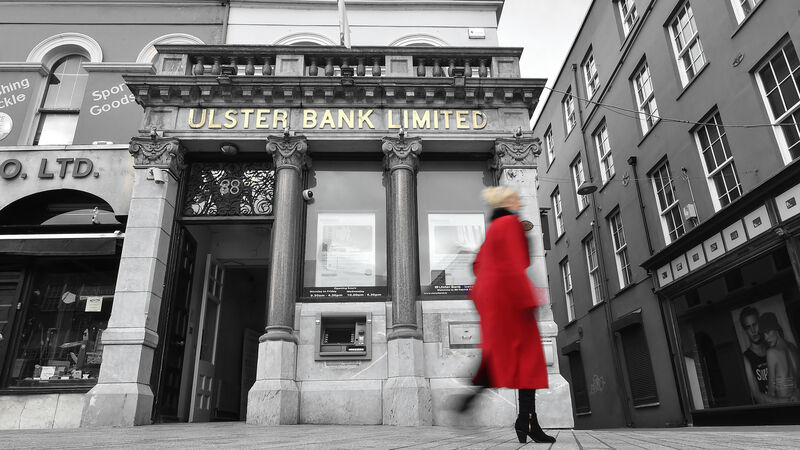Ulster Bank slapped with record €37.8m fine for role in tracker mortgage scandal

The Ulster Bank branch on Patrick Street, Cork. Picture: Dan Linehan
Ulster Bank has been slapped with a fine of almost €37.8m in what is the largest sanction so far in the investigation by the Central Bank into wrongdoing by the banking industry in the tracker mortgage scandal.
The regulator said Ulster Bank had admitted its “serious failings” involving 5,940 of its mortgage customers, some of whom lost their family homes because they were purposely overcharged over long periods of time.











